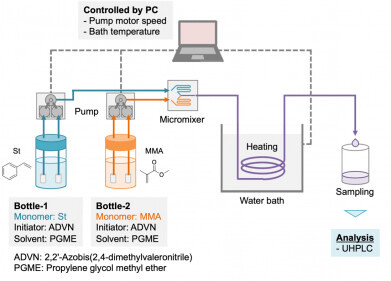-
.jpg) Kat Pollock (Credit: University of Oxford)
Kat Pollock (Credit: University of Oxford)
Research News
Study measures changes in response to vaccines with age
Nov 13 2023
The Oxford Vaccine Group from the University of Oxford has launched a pioneering study into human immunity which will investigate how lymph nodes work and how they make responses to vaccines in younger and older people. The LEGACY03 study, funded by the Medical Research Council part of UK Research and Innovation, is looking to enrol volunteers aged between 18 to 45 years or 65 years and over at the time of screening. Conducted at the Centre for Clinical Vaccinology and Tropical Medicine, at the city’s Churchill Hospital, it will assist researchers to design vaccines that offer greater protection to those most vulnerable to diseases like flu and COVID-19, particularly older people.
As we age, our immune system changes and with it our response to vaccines. Risk of complications from infections like flu and COVID-19 also increases and it is therefore important to understand these changes so that vaccinations can be better tailored for maximum efficacy to protect the most vulnerable.
Dr Katrina Pollock MRC Clinician Scientist in Vaccinology at the Oxford Vaccine Group, Department of Paediatrics, said: “As part of my work as a clinician scientist I was keen to improve understanding of the immune system in people and to respond to the challenges in adult vaccinology which are predominantly two-fold: The first major challenge is the diversity of responses to vaccines in different people, particularly the most vulnerable like older adults or those living with conditions that affect immune function. The second major challenge is making vaccines for targets that rapidly evolve, like COVID-19 and HIV. This study will take an innovative look at individual immune responses using vaccinations as a tool to investigate human immunity at the cellular level. This will help us to tailor future vaccine design to get a better outcome for patients across the board. It has the potential to impact patients for the better and that is what drives my research.”
Participants in the study will receive two vaccines: an mRNA COVID-19 booster vaccine and a seasonal flu jab. Both have been licensed for use in adults and the seasonal flu vaccine is recommended for older adults.Cells from the lymph nodes will be sampled using a technique called fine needle aspiration (FNA) which is a safe and well-tolerated procedure that involves taking cells and fluid from a lymph node using a fine needle.
After a vaccine is given in the arm, white blood cells go to the site of the injection and they take some of the vaccine back to the lymph nodes in the armpit, where the response happens. As well as measuring the output of the vaccine contained in the antibodies in the blood, the researchers will visualise the lymph nodes themselves using an ultrasound scanner and at the same time take a small number of cells from those lymph nodes to see how they are responding. Paired with information about what is happening in the blood, scientists can establish a detailed picture of how different vaccines work.
More information online
Digital Edition
Lab Asia 31.6 Dec 2024
December 2024
Chromatography Articles - Sustainable chromatography: Embracing software for greener methods Mass Spectrometry & Spectroscopy Articles - Solving industry challenges for phosphorus containi...
View all digital editions
Events
Jan 22 2025 Tokyo, Japan
Jan 22 2025 Birmingham, UK
Jan 25 2025 San Diego, CA, USA
Jan 27 2025 Dubai, UAE
Jan 29 2025 Tokyo, Japan


















